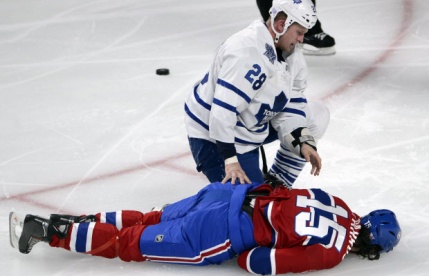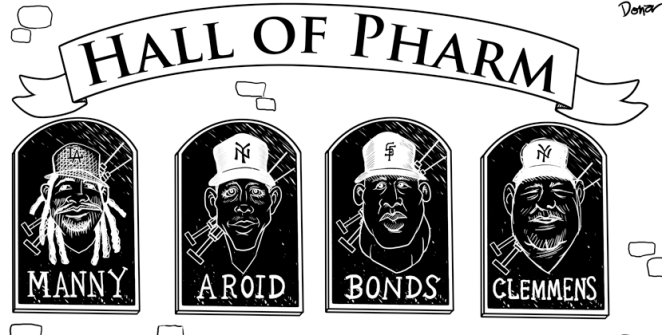According to USA today, annual revenue for the NCAA in the year 2014 topped 1 billion dollars with a surplus of about $80 million- up from $59 million the year before. The players receive money from this revenue stream through the means of scholarship money- but is it enough? The NCAA have explicit rules preventing players from accepting bribes or incentives to play for a certain NCAA, such as in football. Payment to the players has been viewed as a moral issue guiding the NCAA’s policies-; punishments such as suspensions have been given out to players and player management due to violations.
Football is a collision sport and can be viewed as high risk to the participants involved. Contractarianism is the theory of the parties involved consenting to the activity and therefor rendering it moral. In NCAA football, players, fans, universities and the governing bodies are the parties involved that agree that players compete on the field in exchange for an athletic scholarship. The players also subject themselves to injury when they compete- but do they fully understand the risks and should they be compensated further for these risks? With the massive amount of money that the NCAA generates, should more proportionate compensation be paid to the athletes?
Financial compensation
Players aren’t being paid a sufficient amount of money for risking their body on the football field. Contractarianism would suggest that the parties have consented to the risk of injury, but do the players fully understand the extent of the risk? A recent lawsuit against the NCAA cites head trauma as the main reason for further financial compensation for the players in mainly hockey, football and lacrosse. Did those athletes full understand the risks involved in their respective sport? They did not- and the NCAA is profiting off of spectacle that the athletes themselves produce playing. The athletes should be paid more for their injury risks on the field in Football and proportionate to how much the NCAA profits from the athletic spectacle- which is a substantial amount.
The Wall Street Journal quoted a report by the National College Players Association (advocacy group for college athletes in the United States) suggesting that the average full scholarship ride lacks $3,222 a year due to other fees such as utility fees and even parking charges. The scholarship can only pay for so much of the player’s needs. A more progressive approach to funding NCAA football athletes should be considered. The new amount of funding could help players afford the necessities and prevent them from any potential NCAA violations such as bribes to play for a certain NCAA team.
NCAA violations
Over the last 5 years there have been numerous bribe scandals and NCAA rule violations in regards to recruitment and team management conduct. Jacory Harris, former quarterback of the Miami Hurricanes (NCAA football,) was cited a violation due to a tally of “improper meals” and entertainment and nightclub charges. Football teams and players, across the NCAA, have been cited with the same violations and have been dealt with by remedial suspensions. If the players are already breaking rules set by the NCAA, shouldn’t the NCAA have heavier punishments or should the players be paid appropriately- since the players will just risk the penalty? The punishments for the expense violations is not effective. Pay the players a sufficient and even modest salary to avoid rule violations; the appropriate compensation will prevent the incentive by the players to go around NCAA regulation.
Against Paying NCAA football players
Amateurism in sports can be defined as not accepting money for their performance and activity while governed by a regulatory body. In the context of academia, the players participate for the exchange of an education, whether subsidized or fully paid for in the NCAA. Academic integrity might be the first casualty of paying players because the athletes will be bias towards getting an education based on the amount of money that an institution may offer. Higher pay may dictate the enrollment of student athletes rather than the academic focus itself. Larger schools with more capital will have a large advantage over small schools. For example, a highly talented running back may choose to play for Miami because of higher pay roll than a division III School that has an optimal academic environment. Perhaps a player may choose a school based on money but it is not the only factor. Academia, history, potential playing time etc. could all be the important criterion for players, rather than the money.
Utilitarianism, the theory of more benefits than added costs, would suggest the money would provide more necessities to the current players rather than the costs of an overall NCAA recruiting system of money (money that can create recruitment bias towards an NCAA team/school.)
Pay the players- it’s in the NCAA’s best interest
The raising of financial compensation of NCAA football athletes to a salary while still including the scholarship both have a contractarian and utilitarianism argument to support this. While recruitment bias towards larger schools may cause moral issues with paying the players to playing, a NCAA salary cap could be put into play to both prevent ridiculous salaries and to sustain the player’s well-being. Well-being can be defined in this case as the risk factor involved with these athletes and the amount of expenditures the players have when they go to college.
It is important for the NCAA to regulate their league appropriately but move beyond the traditional ways of only providing strictly scholarship funds. The players cannot sustain themselves at this minimal funding level while the NCAA makes millions off of the spectacle that is college football in the United States. NCAA football athletes have to deal with not only injury risk but the living expenses associated with college and academia. While there are reasons not to pay the athletes, there is a farther greater problem and a greater variety of issues regarding the insufficient compensation paid to the athletes from the NCAA. Pay the players adequately for the services they provide on the field.
Links and sources:
http://heinonline.org/HOL/Page?handle=hein.journals/antibull32&div=15&g_sent=1&collection=journals
http://nlcatp.org/5-critical-pros-and-cons-of-paying-college-athletes/
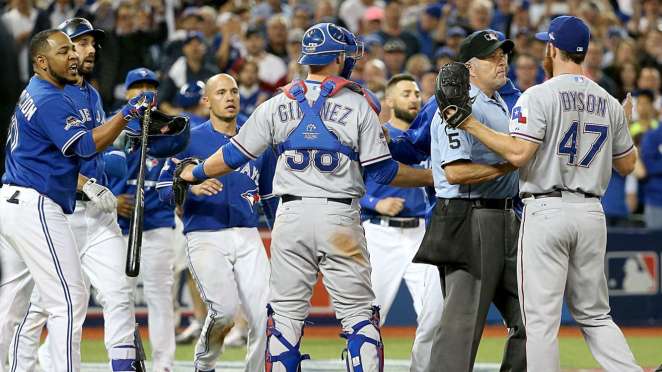
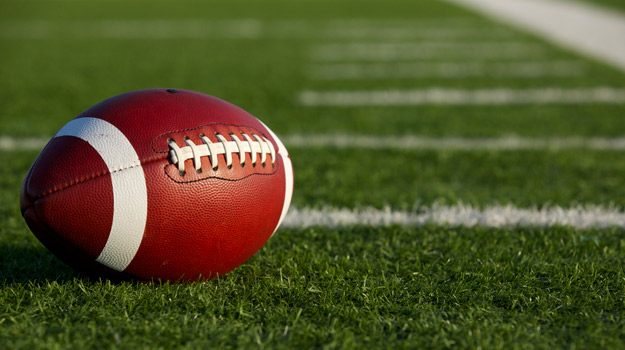




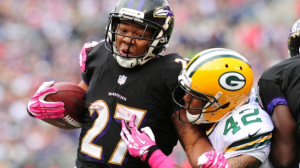
 This perfectly illustrates how young girls feel the need to express their femininity in a venue where that shouldn’t matter.
This perfectly illustrates how young girls feel the need to express their femininity in a venue where that shouldn’t matter.